
Shabbat, beautifully.
From your first candles to your forever ritual.
New to Shabbat? Welcome 😊 — begin here.
-
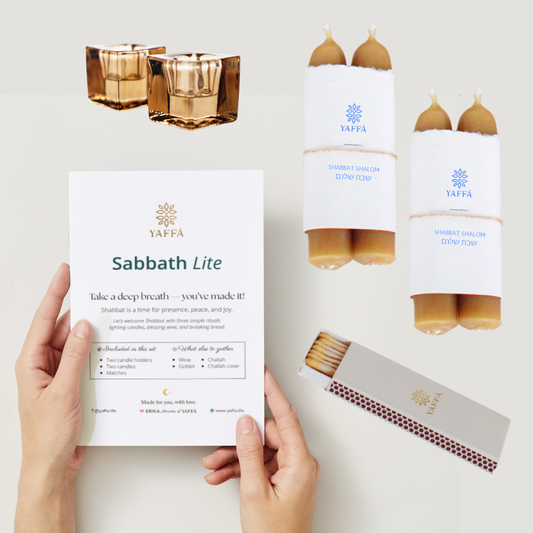
The First Light Set
Your Simple Start to Shabbat
A perfect intro — easy to follow, ready to light.
-
 Glass Candleholders
Glass Candleholders
-
 Beeswax Shabbat Candles
Beeswax Shabbat Candles
-
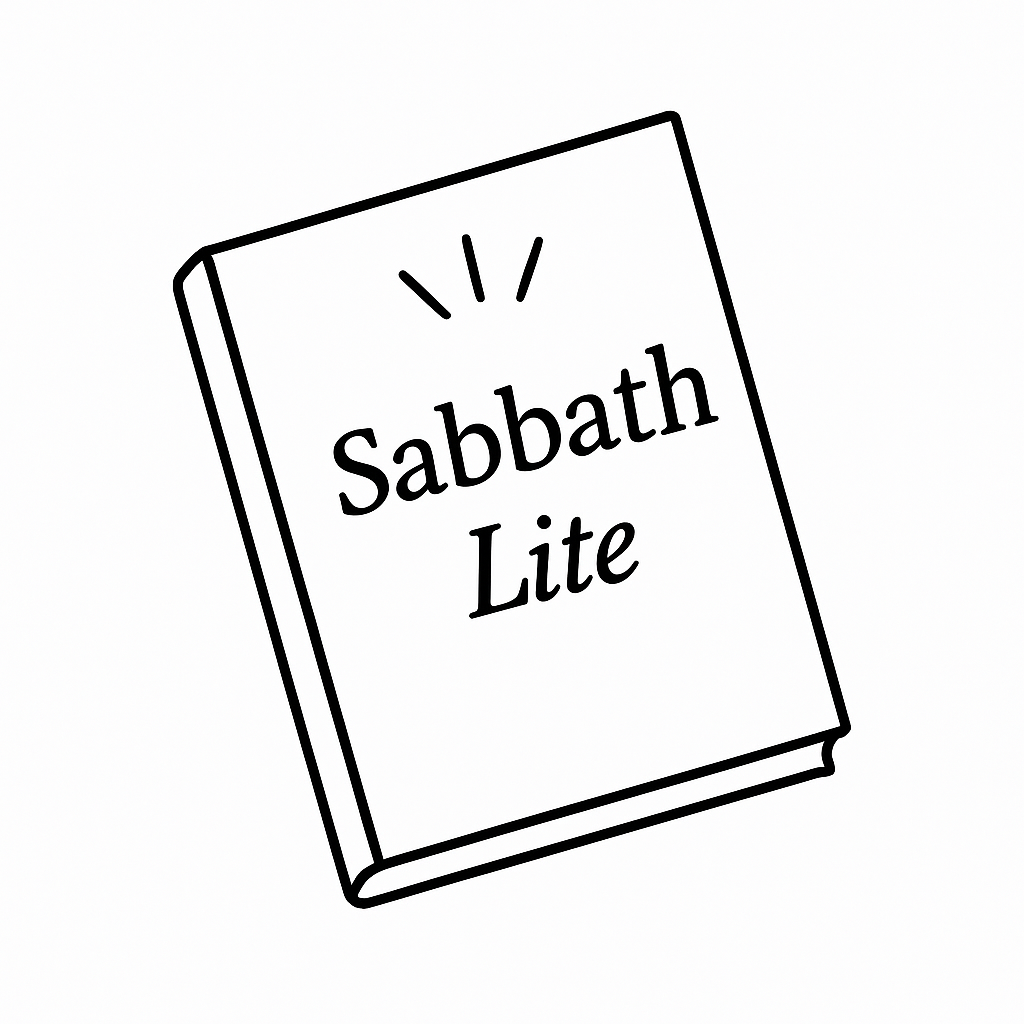 Sabbath Lite Booklet
Sabbath Lite Booklet
-
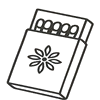 YAFFÁ Matches
YAFFÁ Matches
Regular price $44.00Regular priceUnit price / per
10% of net profit donated
-
YAFFÁ’s Shabbat Sets are more than artisan, hand-crafted kits — they’re an experience.
An invitation to pause, reflect, and bring more meaning, presence, and beauty into your week.
Whether you’re rooted in Jewish tradition, reimagining it on your own terms, or simply Shabbat-curious, each set helps you create sacred moments around the table — with the people who matter most.
They also make unforgettable gifts.
Perfect for weddings, engagements, conversions, birthdays, anniversaries, b’nai mitzvahs, housewarmings, holidays, generous hosts — or simply just because.
The Eternal Set, The Core Set, and The Seasonal Set offer a full 3-month journey of ritual, connection, and depth — designed to be treasured, shared, and remembered.
Fall Shabbat Sets are shipping now 🥳
-
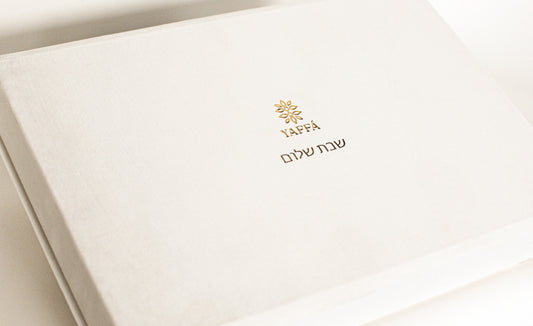
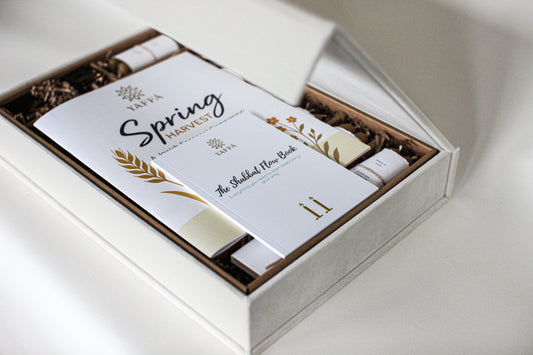
The Eternal Set
Your Timeless Ritual Foundation
A complete heirloom set, designed to be treasured for generations
-
 The Forever Box
The Forever Box
-
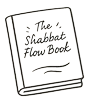 The Shabbat Flow Book
The Shabbat Flow Book
-
 Glass Candleholders
Glass Candleholders
-
 Beeswax Shabbat Candles
Beeswax Shabbat Candles
-
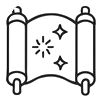 A Jewish Seasonal Companion
A Jewish Seasonal Companion
-
 YAFFÁ Matches
YAFFÁ Matches
Regular price $396.00Regular priceUnit price / per
10% of net profit donated
-
-
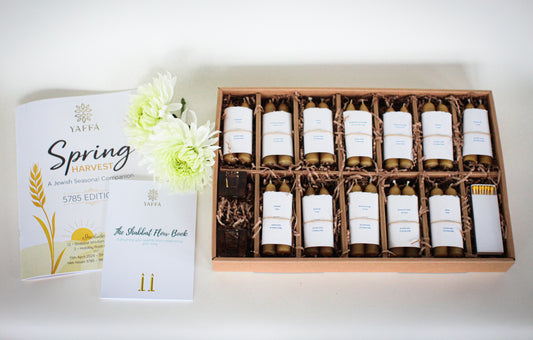
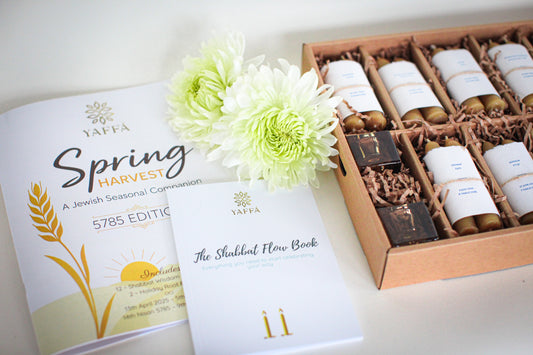
The Core Set
Your Essential Ritual Start
A beautiful beginning — everything but The Forever Box, which can be added anytime
-
 The Shabbat Flow Book
The Shabbat Flow Book
-
 Glass Candleholders
Glass Candleholders
-
 Beeswax Shabbat Candles
Beeswax Shabbat Candles
-
 A Jewish Seasonal Companion
A Jewish Seasonal Companion
-
 YAFFÁ Matches
YAFFÁ Matches
Regular price $252.00Regular priceUnit price / per
10% of net profit donated
-
-

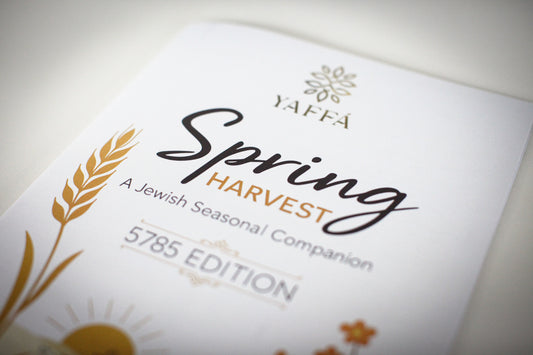
The Seasonal Set
Your Seasonal Ritual Renewal
Candles that glow. Words that grow. Delivered quarterly — as a subscription or a standalone set
-
 Beeswax Shabbat Candles
Beeswax Shabbat Candles
-
 A Jewish Seasonal Companion
A Jewish Seasonal Companion
-
 YAFFÁ Matches
YAFFÁ Matches
Regular price $198.00Regular priceUnit price / per
10% of net profit donated
-
-

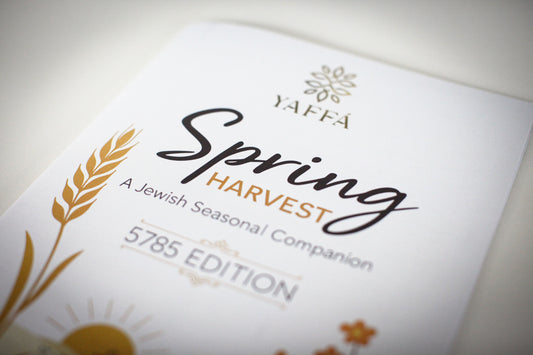
Seasonal Grow
Words that grow. Delivered quarterly — as a subscription or a standalone set
-
 A Jewish Seasonal Companion
A Jewish Seasonal Companion
Regular price $42.00Regular priceUnit price / per
10% of net profit donated
-
-
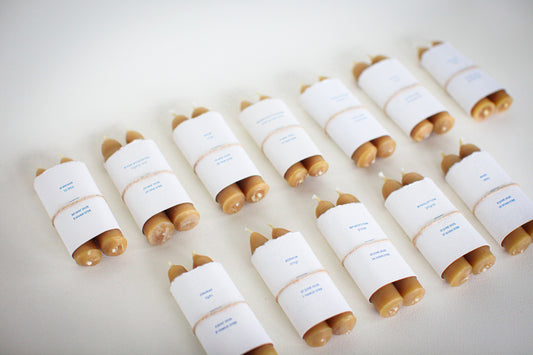

Seasonal Glow
Candles that glow. Delivered quarterly — as a subscription or a standalone set
-
 Beeswax Shabbat Candles
Beeswax Shabbat Candles
-
 YAFFÁ Matches
YAFFÁ Matches
Regular price $162.00Regular priceUnit price / per
10% of net profit donated
-
-
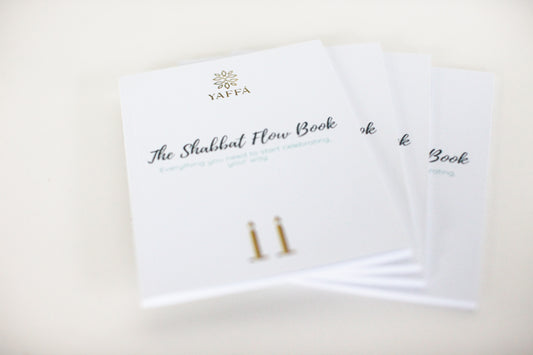

The Shabbat Flow Book
Your Best Friend for Friday Nights
Atmosphere-setting introductions, rituals, and blessings — clear enough for first-timers, rich enough for seasoned keepers, and welcoming for every guest at the table
-
 The Shabbat Flow Book
The Shabbat Flow Book
Regular price $18.00Regular priceUnit price / per
10% of net profit donated
-
-
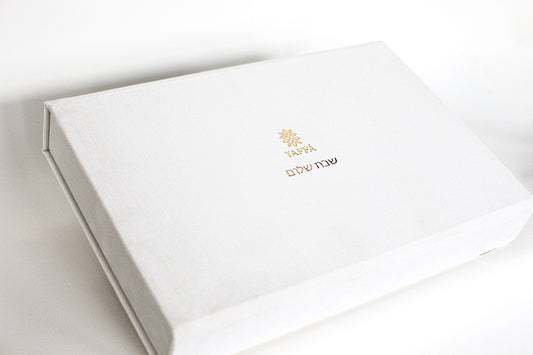
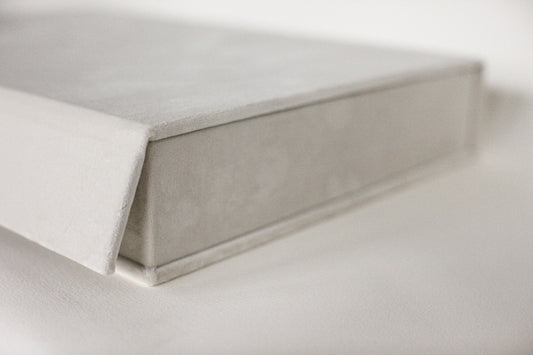
The Forever Box
Your Rituals’ Lasting Home
An heirloom keepsake box, crafted for generations
-
 The Forever Box
The Forever Box
Regular price $198.00Regular priceUnit price / per
10% of net profit donated
-
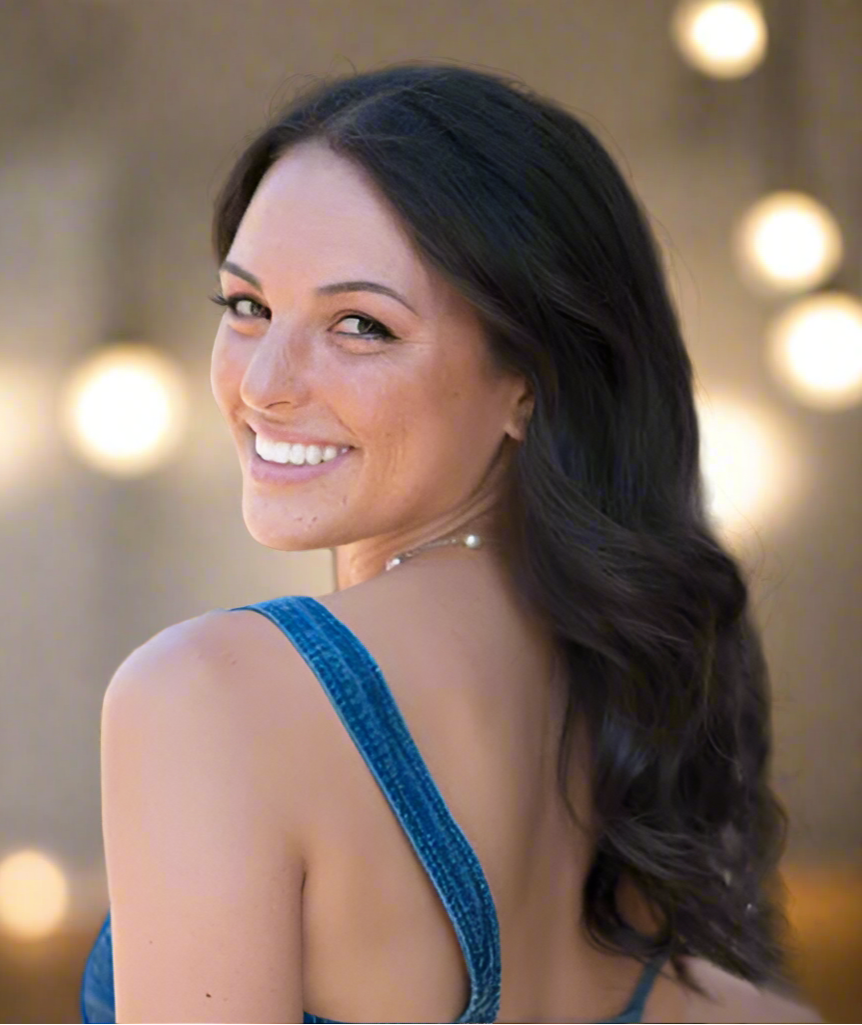
(A Sliver of) Erika's Story
I've always had a deeply Jewish soul. As a five-year-old, I was the one begging my parents to send me to Sunday school—something they found both baffling and mildly concerning. (What sane five-year-old requests religious education, and especially on the weekend?)
Growing up, my family didn't keep Shabbat.
I've always had a deeply Jewish soul. As a five-year-old, I was the one begging my parents to send me to Sunday school—something they found both baffling and mildly concerning. (What sane five-year-old requests religious education, and especially on the weekend?)
Growing up, my family didn't keep Shabbat. In fact, Friday night was my parents' one night of the week not to cook—their well-deserved break from the kitchen. So instead of candles and challah, we had takeout or restaurant meals. Yet despite this casual approach to tradition, I found myself increasingly drawn to Jewish rituals, seeking them out in my own way.
My path took me through a mechanical engineering degree and into a twelve-year career in software for the built environment. But all the while, my Jewish soul was quietly calling me toward something else.
Throughout my life, I attended Shabbat dinners here and there, but as I got older, something shifted. I didn't just want to experience these traditions occasionally—I wanted them to be pillars of my life. A turning point came when I read Abraham Joshua Heschel's The Sabbath. His description of Shabbat as a "sanctuary in time" put words to what I had always felt: that this ancient practice offered something vital and desperately needed in our modern world—a sacred pause from the chaos of everyday life.
Naturally, I started hosting my own Shabbat dinners. I'd gather friends of all backgrounds and faiths around the table, light candles, and—because I can't help myself—introduce a question over dinner based on the weekly Torah portion. What happened around those tables was magical: people lighting up, engaging in deep conversations, wrestling with ideas (as Jews do best), and connecting in a way that felt both ancient and completely relevant to our modern lives.
Then one evening, after yet another spirited dinner, my friends (half of whom were Christian or secular) looked at me and said, "Erika, this is what you should be doing." I laughed it off initially, but their words stayed with me. The joy, connection, and meaning I continued to witness each week at the table were things people craved. I kept thinking: How can I make this experience accessible to as many people as possible? How can I help others bring this beauty into their homes?
Eventually, I made the leap—leaving my technical career behind to pursue this calling; and that's how YAFFÁ was born.
I believe Shabbat is one of Judaism's most beautiful gifts. There's profound wisdom in this thousands-year-old practice: the rhythm of work and rest, the joy of gathering around a table, the balance of ancient tradition and modern personal meaning. I love that while there are universal Shabbat rituals, every family, every culture, every person can make it their own.
In a world that moves too fast, where we're glued to screens and pulled in a million directions, Shabbat offers us something precious—a moment to pause, reflect, and savor what truly matters. YAFFÁ exists to make it easy, beautiful, and deeply meaningful to bring that gift into your own home.
As the saying goes, "More than Jewish people have kept Shabbat, Shabbat has kept the Jewish people." I hope YAFFÁ helps Shabbat keep you, too.
What Our Community is Saying
-
"The candles elevated the Shabbat experience tremendously. From the unboxing to the elegant presentation—they set a tone of mindfulness for the evening."
- Jonathan B.
-
"This experience sparked vulnerable, thoughtful conversations that lasted well into dinner. It’s helping my partner and me rediscover our connection to Judaism."
- Zoe B.
-
"This is what we’ve been looking for as we explore Judaism as adults and new parents. It’s a perfect blend of ritual, reflection, and community connection."
- Mike P.
-
"We hosted a mix of Jews and non-Jews, and it brought everyone closer together. It made Shabbat feel approachable, inclusive, and special."
- Karla M.
-
“Sharing the Torah insights and asking the kids their questions is so sweet and cute. It adds meaning to Shabbat and has helped us start new traditions.”
- Jacqueline S.
-
“I am super excited to use YAFFÁ each week! I love the structure and intention. I feel closer to Judaism than I have in a very long time.”
- Brett P.
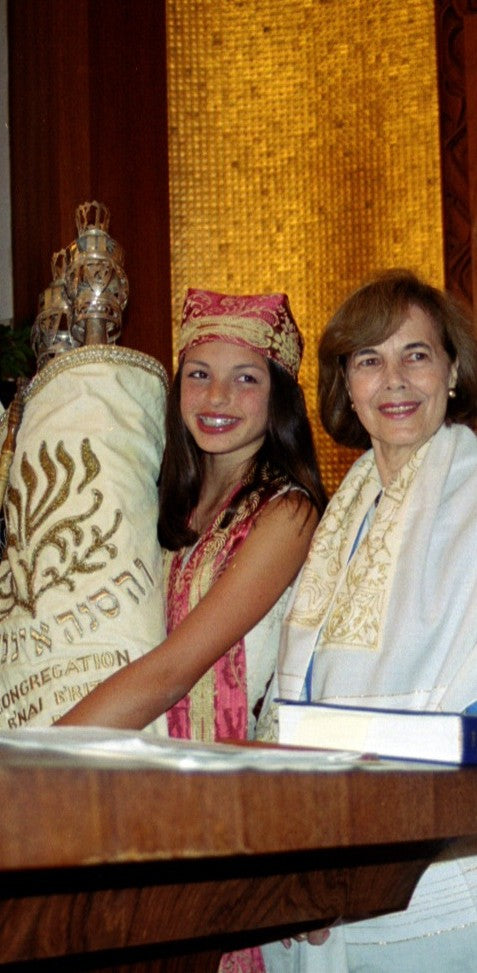
Inspired by My Grandmother
My grandmother, Dr. Tamara Cohn Eskenazi, is (dare I say!) one of the greatest biblical scholars of our time — and one of the greatest loves of my life. Many extraordinary people have shaped my Jewish journey, but she has been the foundation. To me, she is the embodiment of warmth, courage, and wisdom.
Her story is nothing short of remarkable.
My grandmother, Dr. Tamara Cohn Eskenazi, is (dare I say!) one of the greatest biblical scholars of our time — and one of the greatest loves of my life. Many extraordinary people have shaped my Jewish journey, but she has been the foundation. To me, she is the embodiment of warmth, courage, and wisdom.
Her story is nothing short of remarkable. Born in Haifa during World War II, she grew up with both devastation and hope: bombers overhead, refugees arriving with haunted eyes, and the idealism of a young nation daring to dream. After leaving school as a teenager, she returned to education in her thirties as a widowed mother of two in a newly blended family of five. Side by side with her children at the kitchen table, she pursued her degrees — eventually earning her PhD in Biblical Interpretation.
Her brilliance and vision shine through the path she has charted. She became the first woman to serve as editor of the Hebrew Bible in a major Jewish publishing house, and in 1990, the first woman appointed to the rabbinical faculty at Hebrew Union College–Jewish Institute of Religion. She is the primary writer and editor of The Torah: A Women’s Commentary — a groundbreaking, award-winning work. Her enthusiasm for learning — Torah, history, philosophy, art — infuses everything she touches. And yet, she has accomplished all of this with the deepest humility and reverence — qualities as striking as her scholarship itself.
What moves me most, though, is not only her scholarship — it is her spirit. Through profound personal loss and extraordinary life challenges, she has carried herself with resilience, optimism, and joy. Her life is a living reminder that it is never too late to begin again, to rebuild, and to create beauty from hardship.
With YAFFÁ, I aim to carry her light forward. Every Jewish Seasonal Companion I create is rooted in her work. Week by week, I read every word of Torah, commentary, and essay in The Torah: A Women’s Commentary — weaving what resonates into reflections and conversation prompts that fill our pages.
This project is, in many ways, my love letter to her. It is also my invitation to you: to step into the wisdom, wonder, and conversation that she has spent most of her life engaging with — and that I feel blessed to carry forward into a new generation of Jewish ritual.
Giving with Heart: Where Your 10% Makes a Difference
-
Hebrew Free Loan Societies
Explore their siteBuilding financial independence through interest-free loans
With top ratings and a 99.9% repayment rate, Hebrew Free Loan Societies help people achieve self-sufficiency — the same kind of support that helped Erika's grandparents build their American dream after arriving as immigrants through Ellis Island.
-
JDC (American Jewish Joint Distribution Committee)
Explore their siteGlobal humanitarian aid for vulnerable Jewish communities
For over 110 years, JDC has provided life-saving aid to Jews in crisis, from emergency relief to community-building and education, across 70+ countries. With an A+ efficiency rating, nearly every dollar directly impacts those who need it most.
-
MEM Global
Explore their siteInspiring Jewish connection for young adults
MEM Global sparks vibrant Jewish life in 25+ countries through Moishe House, Base, and other innovative programs — empowering young adults to connect with heritage, community, and meaning in a way that feels authentic and alive.























